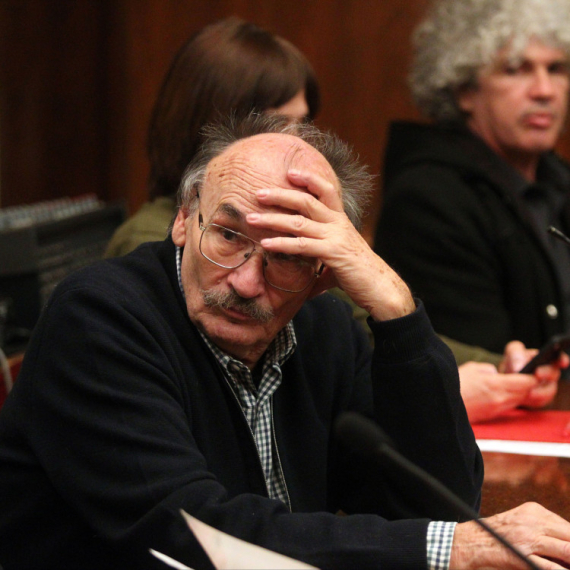Poland need not go the way of Hungary
Wednesday, 28.10.2015.
12:14

Poland need not go the way of Hungary
'Putinism with a Polish face!' 'Cultural revolution a la Polonaise!' 'Orbanisation on the Vistula!' (Orbanisation of course refers to Hungarian Prime Minister Viktor Orban's model of illiberal democracy.) I listen to my Polish friends' Cassandra cries after voters handed victory to a conservative Eurosceptic party in Sunday’s general election, and I think 'Hang on a minute, old friends, let's see what comes, and what we can do about it. Poland has been through worse than this, and there will be other elections.' Yet on one thing we must all agree: this matters. Poland is the biggest success story of post-communist Europe and the leading regional power between an overstretched Germany and a rampant Russia. As Spain and Italy struggle with the effects of the Eurozone crisis, and Britain has marginalised itself until its referendum on EU membership, the rest of Europe needs Poland more than ever.The Law and Justice (PiS) party won for several reasons. First, it profited from the most irresistible argument in politics: 'time for a change'. The Civic Platform government, which has served the country quite well for eight years and presided over an average growth rate of nearly 4% a year, was visibly exhausted. To many Polish voters, it somehow represented a complacent, remote, arrogant political establishment which had been lecturing them from comfortable armchairs (and expensive restaurants) in Warsaw for a quarter-century since the end of communism. This feeling was already visible earlier this year when the solid, avuncular incumbent president Bronislaw Komorowski was unexpectedly defeated by a younger, little-known PiS candidate, Andrzej Duda, who ran a slick American-style campaign.
This time, PiS again had the most effective election campaign, putting forward to stand against Civic Platform's sensible, businesslike female prime minister, Ewa Kopacz, a sensible, businesslike female candidate for prime minister, Beata Szydlo, rather than the old-fashioned and for many voters unpalatable real leader of PiS, Jaroslaw Kaczynski. According to the exit polls, PiS picked up the largest proportion of votes even among voters aged between 18 and 25, while many other youth votes went to protest parties.
PiS represents a large part of Polish society: patriotic, Catholic, conservative inhabitants of small towns and villages, especially in the poorer east and south-east of the country; people who don't feel they have benefited from the transition to market democracy. PiS promises a strong state to protect them against the cold winds of economic and social liberalism. It is right-wing in culture, religion, sexual morality (no abortion or in vitro fertilisation), xenophobia (no Muslim refugees please, we're Polish) and nationalism, but almost left-wing in its economic and social promises to the poor and left-behind. (Orban conjures something of the same mixture in Hungary.) Simplifying greatly, there are two Polands and this time this one won.
So now we will have a new government, potentially the first ever to be formed by a single party since Poland regained its freedom a quarter-century ago. Will they keep all their populist promises to make unaffordably generous welfare handouts, reduce the retirement age and punish nasty cosmopolitan banks and supermarkets? One economist calculates that if they did, it could shave 0.5% off the country's annual growth. Or will they mendaciously resile from some of them, as most incoming governments do? (British readers: think tax credits.) Will foreign policy be shaped by irresponsible nationalists? Or by sensible patriots, of whom the party also has a few, recognising that Poland's real independence depends on maintaining a strong position in Europe, even if that means working with the former Civic Platform prime minister Donald Tusk in Brussels?
Meanwhile, what can everyone else do? Here are just four immediate morning-after thoughts. First, the Polish parties from centre to left finally have to get their act together. Despite the best efforts of former president Aleksander Kwasniewski, they have been a complete mess, leaving PiS and smaller protest parties to pick up the potential left-wing electorate.
Second, more of the talented, energetic young Poles who have left the homeland to enjoy the freedoms of modern European life in countries like Britain and Ireland, should go back to help fortify a modern, liberal, European Poland. Personally, I love having them here as my students at Oxford, and as fellow Europeans in a Eurosceptic Britain, but, if I may put it this way: 'Agnieszka and Pawel, your country needs you!'
Third, whatever our feelings about the wilder demagogues of PiS (PiS artists, so to speak), every foreign politician and friend of Poland should, far from ostracising the democratically elected newcomers, engage intensively and constructively with them. For all its faults, the European Union is the world's most effective exercise in political socialisation. Through those endless meetings, where the new ministers spend more time with their fellow EU ministers than they do with their own families, they discover that the way you advance your national interests in 21st-century Europe is through negotiation and compromise, not 19th-century grandstanding. PiS emphasises its desire to strengthen Poland's special relationship with the United States, so President Barack Obama needs to tell Poland's new prime minister, in their first phone call, what he has already told Cameron: if you want to be best friends with us, then be engaged fully in the EU.
Finally, we must understand the true meaning of Orbanisation. It's not that a single party governs for years with a good majority: that happens in Britain or Spain. Orbanisation means that this dominant party abuses that power to undermine the foundations of liberal constitutional democracy, which are theoretically a condition of EU membership. For example, it creates an overmighty executive, coopts business interests, misuses security services and erodes the independence of courts, the central bank and the media, thus ensuring that the next election is not really free and fair. PiS already has a constitutional project which has elements of that, and if they picked up a few parliamentary allies they might be in a position to push it through. The EU has been feeble in its response to the Orbanisation of Hungary. It must do better here, supporting the more powerful independent forces in Poland that will themselves stand up for liberal, constitutional and European values.
If these four things happen, we may yet look back from 2020 and say 'well, these were strange, difficult years in which Poland moved like a crab: backwards, sideways, but in the end even a little forwards'.
Timothy Garton Ash is Professor of European Studies at Oxford University, where he currently leads the freespeechdebate.com project, and a Senior Fellow at the Hoover Institution, Stanford University. His latest book is Facts are Subversive: Political Writing from a Decade Without a Name



























































Komentari 4
Pogledaj komentare